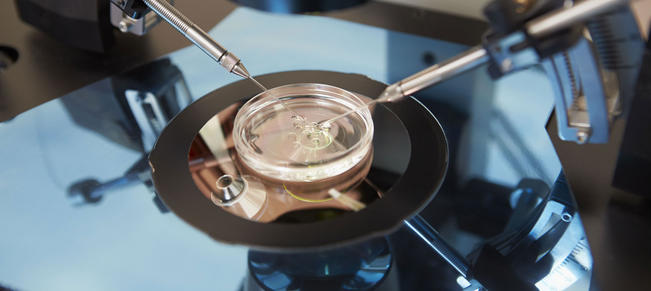7 things You Didn’t Know About IVF

In Vitro fertilization, is commonly referred as IVF treatment and is one of the most common medical procedures for childless couples who are unable to conceive naturally due to infertility or some other reasons.
In Vitro in latin means in glass comes under the assisted reproductive technology (ART). IVF is the process of fertilization by manually combining an egg and sperm, outside the human body, performed in a laboratory dish, and then transferring the embryo to the uterus.
Below are some of things about IVF, you may not know
- Robert Edwards, a physiologist who founded the first IVF program for the infertile couples and trained other scientists in their techniques, was awarded the Nobel Prize in Physiology or Medicine in 2010. He successfully pioneered conception through IVF, which led to the birth of Louise Brown, the first test tube baby.
- Since the inception of IVF technology in the U.S. in 1981, IVF and other similar techniques have resulted in more than 200,000 babies. Hundreds of thousands of children are now born every year as a result of IVF worldwide.
- The techniques of IVF are also employed in gestational surrogacy, where the fertilized egg in implanted into the uterus of the surrogate, and the resulting child is genetically unrelated to the surrogate. Intended parents become the biological parents of a child, born from a surrogate. In some cases, donated eggs or sperms may also be used.
- IVF is one of the best treatments of infertility to childless couples. It can be used when a female partner has blocked or damaged fallopian tubes. IVF can also be used to treat infertility when a woman has ovulation disorders, premature ovarian failure, and uterine fibroids.
- IVF can assist in male infertility when there is low sperm production or sperm quality. In such cases, intracytoplasmic sperm injection (ICSI) may be used, where a sperm cell is injected directly into the egg cell.
- The success rate of IVF depends on the number of factors. The decision to take up this process is mainly on intended parents. The main potential factors that influence pregnancy rates in IVF have been suggested to be maternal age, duration of infertility or sub fertility, and number of oocytes, and all reflecting ovarian function.
- The latest research indicates that a high protein and low carbohydrate diet in women undergoing treatment can increase the success of IVF.
If you have any query related to this, Please let us know by submitting your queries in the section mentioned below or write us at [email protected]
